Foods To Avoid With Diabetes: 20 High-Sugar Items To Skip
To check your blood glucose levels, you may have to cut out some foods from your diet.
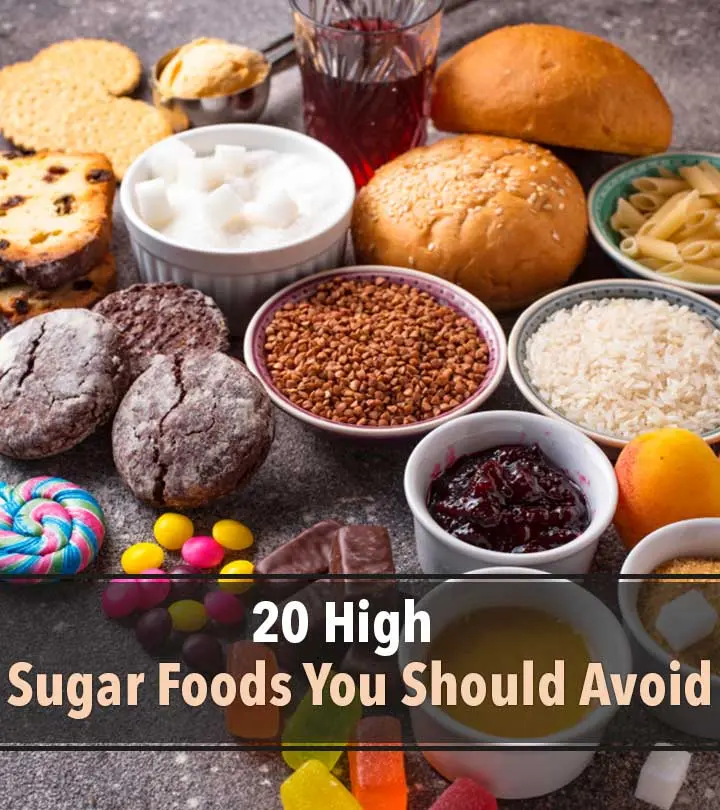
Image: Shutterstock
If you have diabetes, you must avoid foods high in sugar and carbs. Foods with high sugar content lead to obesity, diabetes, and heart disease (1). So, what foods to avoid with diabetes? According to the WHO, about 1.9 billion adults worldwide are obese (2). This is primarily due to the excess consumption of high-sugar foods, which also leads to sugar addiction, especially during emotional stress (3). According to the Centers for Disease Control and Prevention, the average intake of added sugar for adults above 20 years of age was 17 teaspoons. Furthemore, the average intake for men and women was 19 and 15 teaspoons respectively. Zero-calorie or zero sugar foods have sugar in hidden forms (4). Hence, choosing the right foods for diabetes may become a bigger challenge. A rule of thumb is to limit your sugar intake between 100-150 calories per day as per the guidelines by the American Heart Association (5). Diabetes is one of the most common conditions that affect individuals across the globe. This graph shows the prevalence of diabetes in different age groups, races, and genders. The data indicates that 28.7 million people, which is 8.7% of the US population, were diagnosed with diabetes between 2018-19. 
Prevalance Of Diabetes In US By Race, Gender, And Age
Source: https://www.cdc.gov/nutrition/php/data-research/added-sugars.html?CDC_AAref_Val=https://www.cdc.gov/nutrition/data-statistics/added-sugars.htmlThis post lists 20 high-sugar foods you must avoid if you have diabetes. Avoiding them will keep you from gaining weight and becoming obese and also helps keep your blood sugar in check. Continue reading to know which high-sugar foods to avoid in your diet.

In This Article
Foods High In Sugar
The first step is to chart out your diet and check how much junk food vs. healthy food you consume on a daily basis. Here are some foods that are high in sugar but are disguised as healthy food.
1. Low-Fat Yogurt
Yogurt is good for your gut health. It aids the production of good gut bacteria and helps improve digestion (6). It is a common misconception that low-fat yogurt or milk is better than the full-fat variant. This is not true. Low-fat yogurt contains added sugar and flavor to make it taste as good as full-fat yogurt. Opt for the latter variety to get the benefits (7).
2. BBQ Sauce
, like barbeque sauce, sometimes taste the best. BBQ sauce is usually used for marinating meat and veggies. It also is popular as a dip.
Unfortunately, it also contains a huge amount of added sugar. Two tablespoons of BBQ sauce can contain as much as 16 g of added sugar (8). Read the labels before buying these types of sauces. Understand how much sugar they contribute per serving. If you have enough time to cook or are health-conscious, you can make homemade marinades and dips to enjoy your food with.
3. Vitamin Water
Vitamin water is basically water fortified with vitamins and minerals. It has become very popular in the recent past. It looks good, the packaging is smart, and it gives you a sense of consuming a healthy drink. But you will be surprised to know that one bottle of vitamin water contains 32 grams of added sugar and 120 calories (8). You can instead drink plain water or make detox water at home and sip on it to hydrate yourself. This way, you can also replenish the vitamin and mineral stores in your body.
4. Sports Drinks

Sports drinks are mostly taken by athletes or those who exercise vigorously. These drinks are specifically meant for elite athletes and marathon runners who need readily available energy in the form of glucose. But recently, sports drinks are also being marketed among adolescents as a way to fuel up their body. No information, however, is being given that sports drinks are loaded with sugar (9). Studies showed that intake of sports drinks increases BMI in both males and females (10).
5. Packaged Fruit Juices And Soda
Nothing can beat eating whole fruits to get all the nutrients. Packaged fruit juices are low in fiber, minerals, and vitamins. Moreover, they may contain added sugar and artificial flavors and colors. A study on fruit juices and drinks revealed that over 40% of products contain 19 g of sugar (11). Sugar sweetened soda or fruit punches contain 150 calories, most of which come from added sugar (12). Drinking packaged fruit juices and soda invites many lifestyle diseases like obesity, diabetes, cardiovascular disorders, etc. Making freshly pressed juice at home could be ideal. You can have it without adding sugar. You can also replace soda with detox drinks or fruit juices.
6. Flavored Green Tea And Coffee
Green tea has amazing health benefits
. This low-caffeine and high-antioxidant drink can fight disease and restore your health. Many flavored green teas have also gained popularity due to their unique flavor and sweet taste. But guess what? They contain added sugar and/or artificial sweeteners, both of which could be harmful. Coffee is also a much-loved beverage, but adding sugar and cream can make it harmful. Consume pure green tea and black coffee without adding sugar and cream.
7. Iced Tea
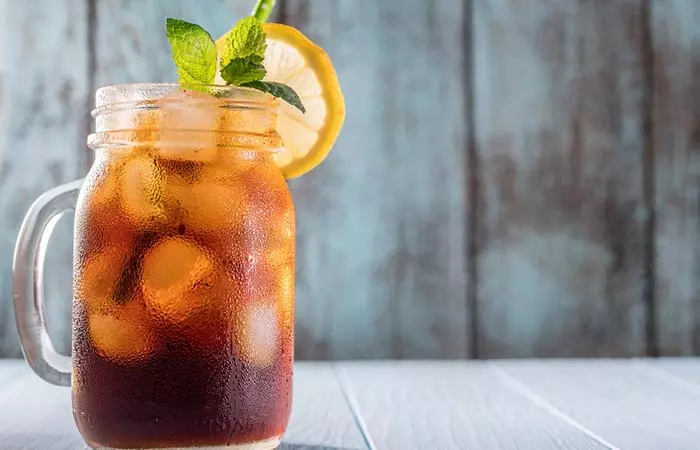
Iced tea is nothing but chilled tea sweetened with sugar or any other flavored syrup. It has high calories and increases sugar load, and both of these can lead to an insulin spike. Moreover, too much consumption of iced tea can lead to oxalate stone formation in the kidneys (13). If you are a tea lover, choose normal tea and drink it without sugar. You can also prepare iced tea at home using good quality tea, lemon, honey, fruits, and herbs.
8. Sugar-Free Products
We often think that using sugar-free products is a safe way to avoid sugar. But according to the American Heart Association (AHA), limiting calories by using sugar free-products is not a healthy choice. It can lead to several health issues, including weight gain (14). Sugar-free products contain sugar alcohols, such as sorbitol and mannitol. Though the sugar alcohols cannot be completely absorbed by the body, consuming too much of them can lead to digestive problems, which ultimately slow down metabolism and lead to weight gain (15). Hence, it is always better limit sugar intake. You can also choose natural sugars from whole fruits that are high in fiber, low in glycemic load, and beneficial for weight loss (16), (17).
9. Cookies And Biscuits
Cookies and biscuits are loaded with sugar that improves their taste and texture. Store-bought cookies and biscuits contain refined flour, added sweeteners, dry fruits, preservatives, and food additives. Though these ingredients make them tastier, they also can cause harm. You can bake cookies at home or order them from the local baker and give them clear instructions on how much sugar they should add. Replace refined flour with whole wheat flour or oatmeal.
10. Granola Bars
Granola or cereal bars are made of oats. But they are not as healthy as plain rolled oats. These bars contain added free sugar (99.1%) (18) . They also contain honey, nuts, and dried fruits, which can increase your calorie-iintake.
 Fun Fact
Fun Fact11. Dried And Canned Fruits
Dried and canned fruits are delicious. However, canned fruits are preserved in sugar syrup through a process called osmotic dehydration (19). This process not only destroys the fiber and vitamins but also increases the calorie count. Consume fresh fruits instead of dried or canned variants. This minimizes your sugar intake and reduces the calorie load.
12. Cakes, Pastries, And Donuts

These sugary delights improve your mood as they give you a sugar high. Cakes, pastries, and donuts not only contain extra sugar but are also made of refined flour and high-fat ingredients that are not good for your health (20). Limit your intake of these sugary foods. Try baking at home and use less sugar. Replace the flour with grated carrot, gourd, pumpkin, etc.
13. Bagels And Churros
These favorite American and French foods have no match. But they contain are high in sugar and calories (21). You can avoid grabbing a bagel on your way to work if you get up in the morning and make a delicious breakfast. Avoid churros by consuming green tea and a saltine cracker in the evening.
14. Breakfast Cereals
Breakfast cereals are many people’s go-to option because they are quick, easy, available, portable, crunchy, and tasty. However, avoid any breakfast cereal that contains added flavors and too much sugar. Sweetened breakfast cereals contain high-fructose corn syrup. In studies, HFCS in sweetened breakfast cereals was found to increase adipose tissue and abdominal fat in rats (22). Consume plain corn flakes, Rice Krispies, and any cereal that has no added sugar.
15. Ketchup
Ketchup is one of the popular condiments worldwide, but it is loaded with sugar and salt. These two major ingredients are balanced in a calculated manner to keep the customers wanting for more. A tablespoon of ketchup contains 3 grams of added sugar (23). If you are on a weight loss mission or want to improve your health, stop consuming ketchup. Make yogurt dips, mint dips, coriander dips, hummus, etc. at home.
 Trivia
Trivia16. Salad Dressing
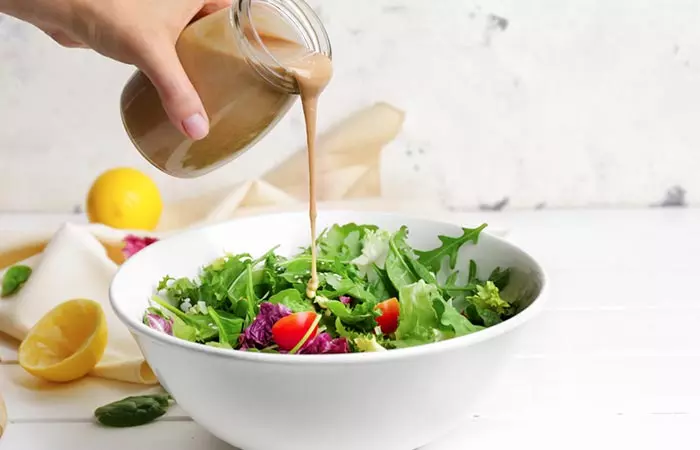
Packaged salad dressings are a convenient option if you lead a busy life. But relying on them completely can make you consume more sugar than you normally would. Two tablespoons of salad dressing contain 5 grams of added sugar (24). Plus, there are other additives and taste enhancers that are added to packaged salad dressings. Make a homemade salad dressing by mixing olive oil, Dijon mustard, chili flakes, salt, herbs, honey, and lime juice. You can even use fresh fruit juice in your salad dressing.
17. Bottled Spaghetti Sauce
Like ketchup, bottled spaghetti sauce is also high in sugar. Therefore, instead of buying pasta sauce from the supermarket, make it at home. It is pretty simple, and the recipe is easily available online.
18. Frozen Pizza
Frozen foods, including frozen pizza, contain a shocking amount of sugar, preservatives, and added colors and flavors. As they are readymade meals made with refined flour, they contribute to obesity (especially central obesity) (25). The pizza dough is made with flour, which is a refined carbohydrate. Pizza sauce also contains a good amount of sugar to enhance the taste. Hence, look for better low-sugar options, like homemade flatbread pizza or a lettuce wrap.
19. Bread
A soft and straight-out-of-the-oven loaf of bread is one of the most popular breakfast options worldwide. Bread is made of refined flour, sugar, and yeast. Consuming too many bread slices can lead to a spike in the blood glucose and insulin levels. Plain bread also has a high glycemic index and glycemic load when compared to the multigrain variety (26). Consume multigrain bread to add complex carbs to your diet. You can also replace plain white bread with oat bran, egg omelet, or veggies.
20. Ready-To-Eat Soups
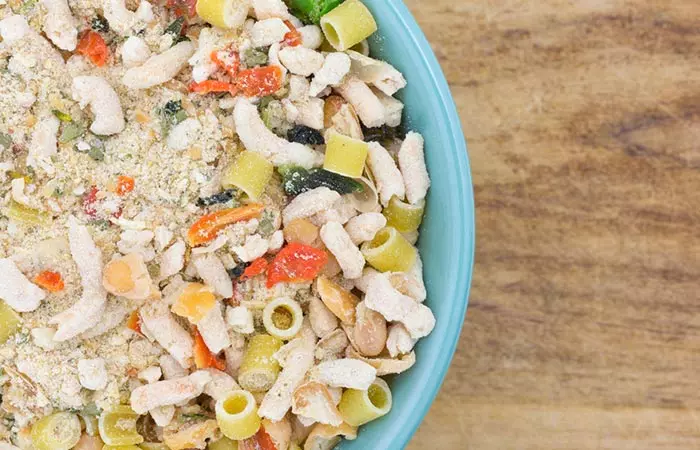
Ready-to-eat soups are so convenient. All you have to do is add them to hot water, and your dinner is ready! However, the thick or cream-based soups contain corn flour and are high in calories. You can instead make a quick soup by tossing all the veggies and your choice of protein (mushroom, chicken, etc.) into a soup pot and slow cooking it.
21. Popsicle
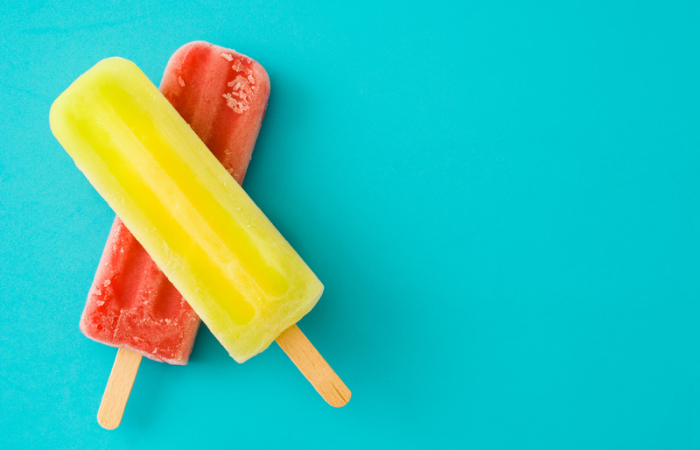
Popsicles contain high amounts of sugar and lack any nutritional value. A 100-gram serving of popsicles contains 135 calories, 30.77 grams of carbohydrates, and 21.1 grams of sugar (27). They can cause rapid spikes in blood sugar levels. Hence, you can make homemade popsicles with natural fruit juices or sugar-free options to satisfy your sweet tooth. You can also consume natural sugar free fruits to appease those sweet cravings!
22. Marshmallows
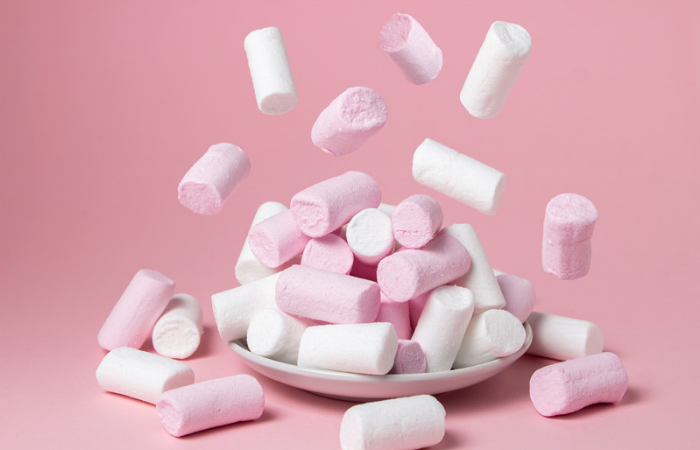
Marshmallows are high in sugar and carbohydrates and can cause rapid blood sugar spikes. They are low in nutrients and fiber and are often considered empty calories. A-100 gram serving of marshmallows contains 333 kilocalories, 80 grams of carbohydrates, and 60 grams of sugar (28). This is why many health enthusiasts prefer to follow a no sugar diet.
Mokdah, a retired communication practitioner and blogger, explained how she replaced high-sugar foods with healthy alternatives. On her blog, she writes, “I started to learn eating brown rice (whole grain rice) instead of white rice, which has several health benefits to help a diabetic and hypertension patient. I only take green tea or Earl Grey tea, less coffee but no more Milo or Nescafe (i).”
Key Takeaways
- Adults should consume added sugars to less than 10% of their total daily calorie intake.
- Packed fruit juices or punches are loaded with sugar. Avoid consuming these, as they can lead to obesity.
- Bread and sauces are two unexpected items that contain sugar.
Infographic: Foods That Raise Blood Sugar Quickly And Their Healthy Substitutes
People with diabetes should avoid high-sugar foods and foods rich in simple carbohydrates. They raise blood sugar levels quickly and are considered high GI foods. Check out the infographic to find some common high GI foods and their low GI substitutes. Scroll down. Illustration: StyleCraze Design Team
Frequently Asked Questions
What sugars should you avoid?
Avoid added sugars. Foods with added sugars are loaded with calories and may cause obesity. Choose natural sugars from whole fruits, honey, or jaggery. But limit your portions, as nothing in excess is good for your health.
What happens when I stop eating sugar?
Your body needs sugar to convert to fuel. If you totally avoid sugar, you may feel low on energy. Hence, you can add limited sugar, but make sure you choose healthier options. For example, you may choose jaggery over cane sugar. Try to limit your daily sugar intake to less than 10 grams.
Will I lose weight if I cut out sugar?
Cutting down on sugar lowers your calories, but there are other steps you need to consider. Opt for a healthy lifestyle, along with a balanced dietary approach, and proper sleep. These can contribute to a healthy weight loss.
How can people with diabetes choose healthier alternatives to the foods they need to avoid?
Foods with a low glycemic index help maintain blood sugar levels. Replace processed, sugary, and fried foods with foods rich in healthy carbs, such as lean proteins, whole grains, etc.
Are there any types of oils to avoid if you have diabetes?
It is best to avoid refined oils due to trans-fat formation, such as cottonseed, soybean, and canola oil. Cold-pressed oils have a higher nutrient value and are healthier for cooking.
Are there any foods that can help lower blood sugar levels?
Yes, leafy greens, fatty fish, beans, lentils, nuts, pumpkin, okra, flax seed, etc. can help lower or better regulate the blood sugar level.
Are there any special considerations for people with type 2 diabetes when it comes to food choices?
Removing high-fat meats, carbs, sugar, and processed foods from your diet will help regulate the blood sugar level. Carbohydrates from fruits, vegetables, grains, and dairy are considered healthier.
How does maintaining a balanced diet help manage diabetes?
A balanced diet is important for managing diabetes as it helps control blood sugar levels and the sudden spikes or drops. A balanced diet also offers vital nutrients, boosts energy, and encourages healthy weight.
Illustration: High-Sugar Foods You Should Avoid If You Have Diabetes
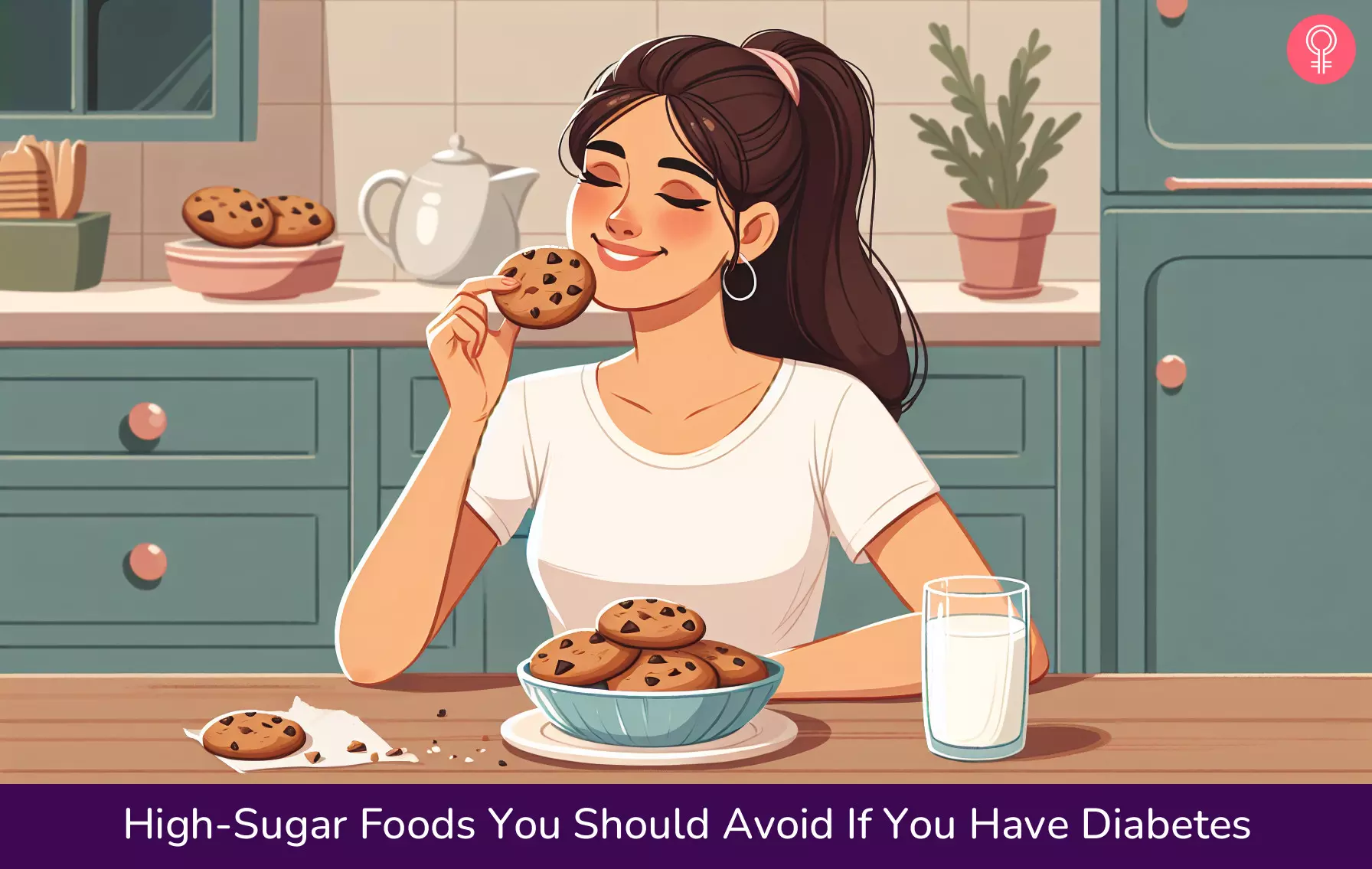
Image: Dall·E/StyleCraze Design Team
Check out this video and find out about the foods that contain hidden high sugar. Learn more about these foods to make an informed choice.
Personal Experience: Source
StyleCraze's articles are interwoven with authentic personal narratives that provide depth and resonance to our content. Below are the sources of the personal accounts referenced in this article.
i. #fooddiaryMokDah: A DIABETIC AND HYPERTENSION PATIENT FOOD DIARY;https://mokdah-mokdah.blogspot.com/2015/03/fooddiarymokdah-diabetic-and.html
References
Articles on StyleCraze are backed by verified information from peer-reviewed and academic research papers, reputed organizations, research institutions, and medical associations to ensure accuracy and relevance. Read our editorial policy to learn more.
- Relationship between Added Sugars Consumption and Chronic Disease Risk Factors: Current Understanding, Nutrients, US National Library of Medicine, National Institutes of Health. https://www.ncbi.nlm.nih.gov/pmc/articles/PMC5133084/
- Obesity and overweight, World Health Organization. https://www.who.int/en/news-room/fact-sheets/detail/obesity-and-overweight
- Evidence for sugar addiction: Behavioral and neurochemical effects of intermittent, excessive sugar intake, Neuroscience and Biobehavioral Reviews, US National Library of Medicine, National Institutes of Health. https://www.ncbi.nlm.nih.gov/pmc/articles/PMC2235907/
- A systematic comparison of sugar content in low-fat vs regular versions of food, Nutrition and Diabetes, US National Library of Medicine, National Institutes of Health. https://www.ncbi.nlm.nih.gov/pubmed/26807511
- Dietary sugars intake and cardiovascular health: a scientific statement from the American Heart Association, Circulation, US National Library of Medicine, National Institutes of Health. https://www.ncbi.nlm.nih.gov/pubmed/19704096
- Evidence for the effects of yogurt on gut health and obesity, Critical Reviews in Food Science and Nutrition, US National Library of Medicine, National Institutes of Health. https://pubmed.ncbi.nlm.nih.gov/25875150/
- Whole-fat dairy food intake is inversely associated with obesity prevalence: findings from the Observation of Cardiovascular Risk Factors in Luxembourg study, Nutrition Research, US National Library of Medicine, National Institutes of Health. https://www.ncbi.nlm.nih.gov/pubmed/25159495
- Does Consuming Sugar and Artificial Sweeteners Change Taste Preferences? The Permanente Journal, US National Library of Medicine, National Institutes of Health. https://www.ncbi.nlm.nih.gov/pmc/articles/PMC4500487/
- Adolescent Consumption of Sports Drinks, Pediatrics,US National Library of Medicine, National Institutes of Health. https://www.ncbi.nlm.nih.gov/pubmed/29735573
- Association of sports drinks with weight gain among adolescents and young adults, Obesity,US National Library of Medicine, National Institutes of Health. https://www.ncbi.nlm.nih.gov/pubmed/25044989
- How much sugar is hidden in drinks marketed to children? A survey of fruit juices, juice drinks and smoothies, BMJ Open, US National Library of Medicine, National Institutes of Health. https://www.ncbi.nlm.nih.gov/pmc/articles/PMC4809069/
- Sugary Drinks, Harvard T.H. Chan School Of Public Health. https://nutritionsource.hsph.harvard.edu/healthy-drinks/sugary-drinks/
- A Case of Iced-Tea Nephropathy, The New England Journal of Medicine. https://www.nejm.org/doi/full/10.1056/NEJMc1414481
- Nonnutritive Sweeteners: Current Use and Health Perspectives, American Heart Association. https://www.ahajournals.org/doi/full/10.1161/CIR.0b013e31825c42ee
- Gastrointestinal Disturbances Associated with the Consumption of Sugar Alcohols with Special Consideration of Xylitol: Scientific Review and Instructions for Dentists and Other Health-Care Professionals, International Journal of Dentistry, US National Library of Medicine, National Institutes of Health. https://www.ncbi.nlm.nih.gov/pmc/articles/PMC5093271/
- Health Benefits of Fruits and Vegetables, Advances in Nutrition, An International Review Journal, US National Library of Medicine, National Institutes of Health. https://www.ncbi.nlm.nih.gov/pmc/articles/PMC3649719/
- Fruit consumption and risk of type 2 diabetes: results from three prospective longitudinal cohort studies, BMJ, US National Library of Medicine, National Institutes of Health. https://www.ncbi.nlm.nih.gov/pmc/articles/PMC3978819/
- Total and Free Sugar Content of Pre-Packaged Foods and Non-Alcoholic Beverages in Slovenia, Nutrients, US National Library of Medicine, National Institutes of Health. https://www.ncbi.nlm.nih.gov/pmc/articles/PMC5852727/
- Osmotic dehydration of fruits and vegetables: a review, Journal of Food Science and Technology, US National Library of Medicine, National Institutes of Health. https://www.ncbi.nlm.nih.gov/pmc/articles/PMC4152536/
- Eating too much added sugar increases the risk of dying with heart disease, Harvard Health Publishing, Harvard Medical School. https://www.health.harvard.edu/blog/eating-too-much-added-sugar-increases-the-risk-of-dying-with-heart-disease-201402067021
- Nutritive value of Bagels, plain, enriched, with calcium propionate. U.S. Department of Agriculture, Agricultural Research Service. https://fdc.nal.usda.gov/fdc-app.html#/food-details/174899/nutrients
- High-fructose corn syrup causes characteristics of obesity in rats: increased body weight, body fat and triglyceride levels, Pharmacology, Biochemistry, and Behaviour, US National Library of Medicine, National Institutes of Health. https://www.ncbi.nlm.nih.gov/pmc/articles/PMC3522469/
- Nutritive value of ketchup, U.S. Department of Agriculture. https://fdc.nal.usda.gov/fdc-app.html#/food-details/467734/nutrients
- Nutritive value of salad Dressing, U.S. Department of Agriculture. https://fdc.nal.usda.gov/fdc-app.html#/food-details/463506/nutrients
- Consumption of ready-made meals and increased risk of obesity: findings from the Observation of Cardiovascular Risk Factors in Luxembourg (ORISCAV-LUX) study, The British Journal of Nutrition, US National Library of Medicine, National Institutes of Health. https://www.ncbi.nlm.nih.gov/pmc/articles/PMC4302389/
- Glycemic Responses, Appetite Ratings and Gastrointestinal Hormone Responses of Most Common Breads Consumed in Spain. A Randomized Control Trial in Healthy Humans, Nutrients, US National Library of Medicine, National Institutes of Health. https://www.ncbi.nlm.nih.gov/pmc/articles/PMC4488771/
- Popsicle, USDA.
https://fdc.nal.usda.gov/fdc-app.html#/food-details/393049/nutrients - Marshmallows, USDA.
https://fdc.nal.usda.gov/fdc-app.html#/food-details/732060/nutrients
Read full bio of Dr. Jill Carnahan
Read full bio of Priyanka Sadhukhan
Read full bio of Arshiya Syeda
Read full bio of Himanshi Mahajan







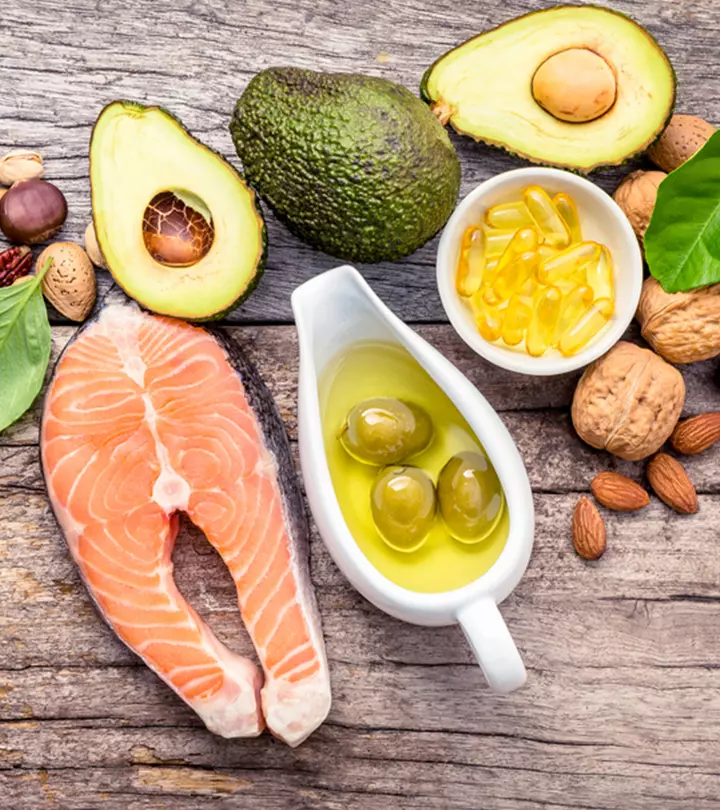
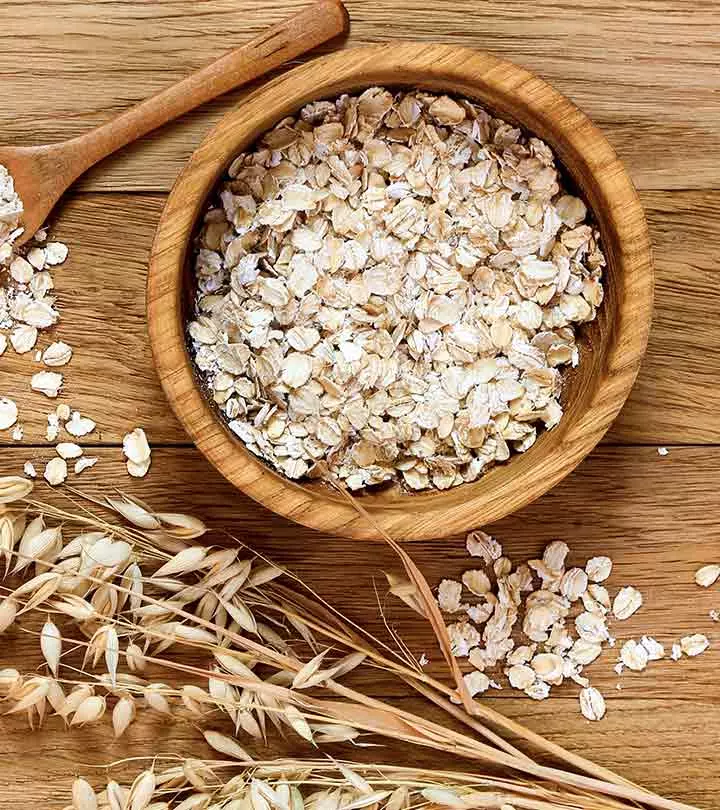




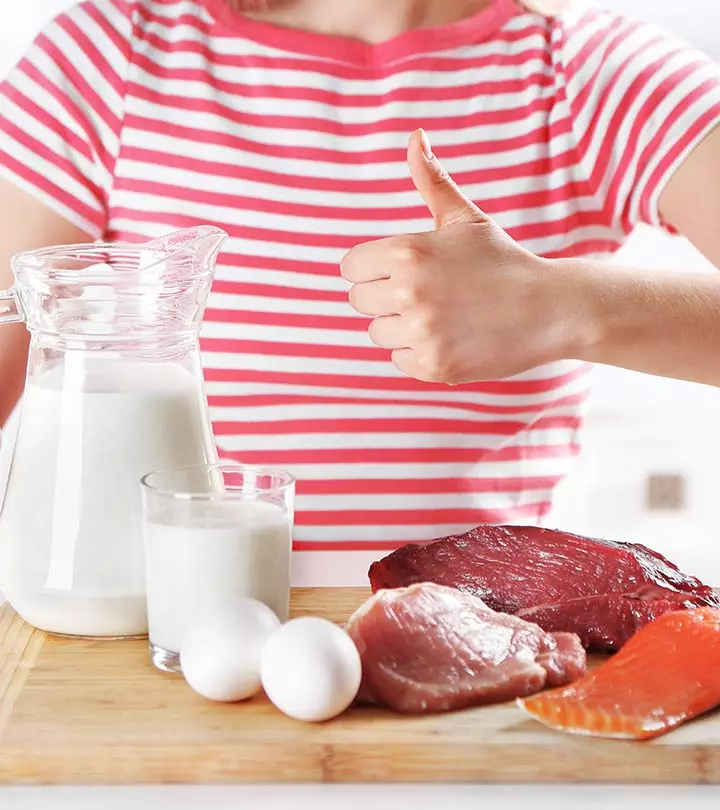
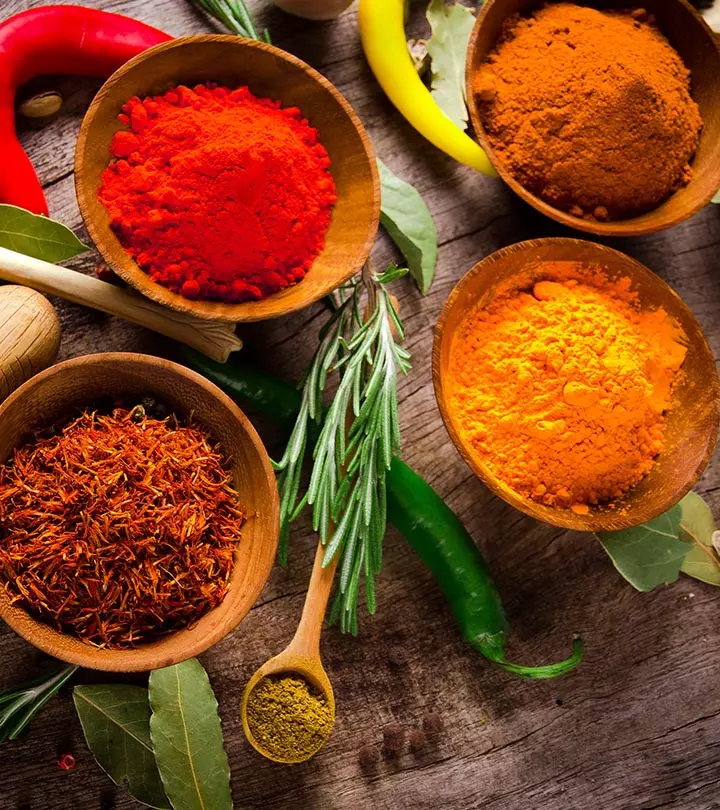
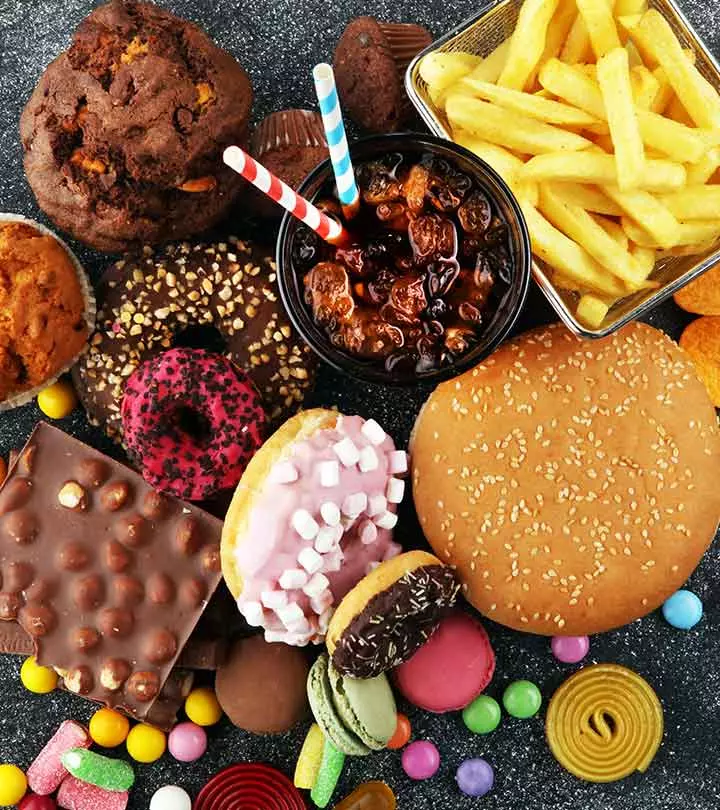
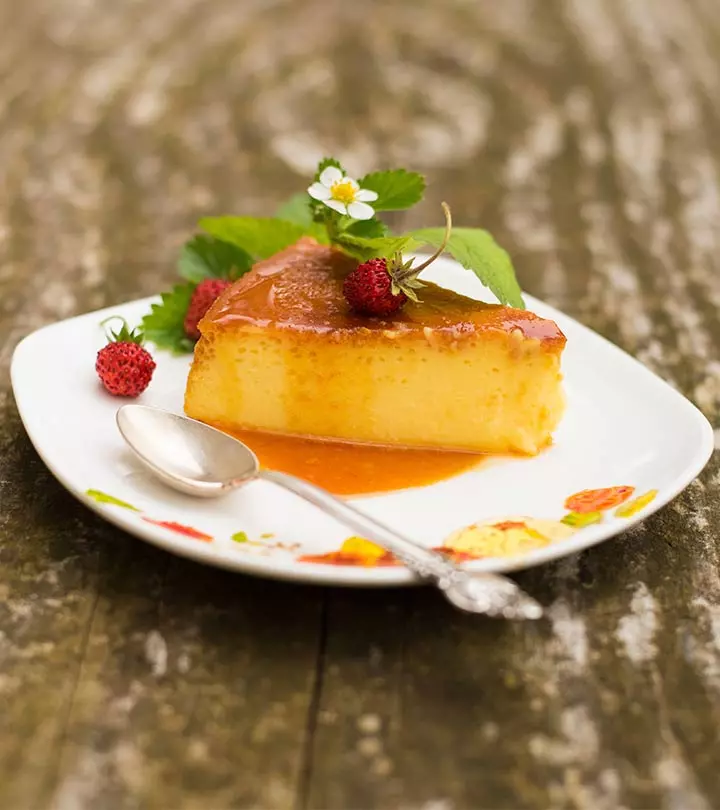
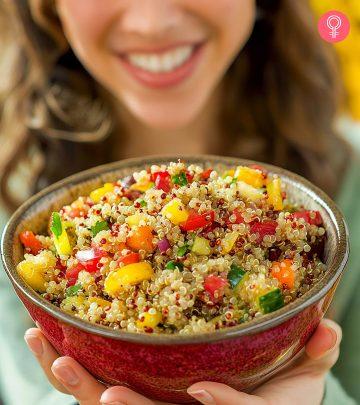
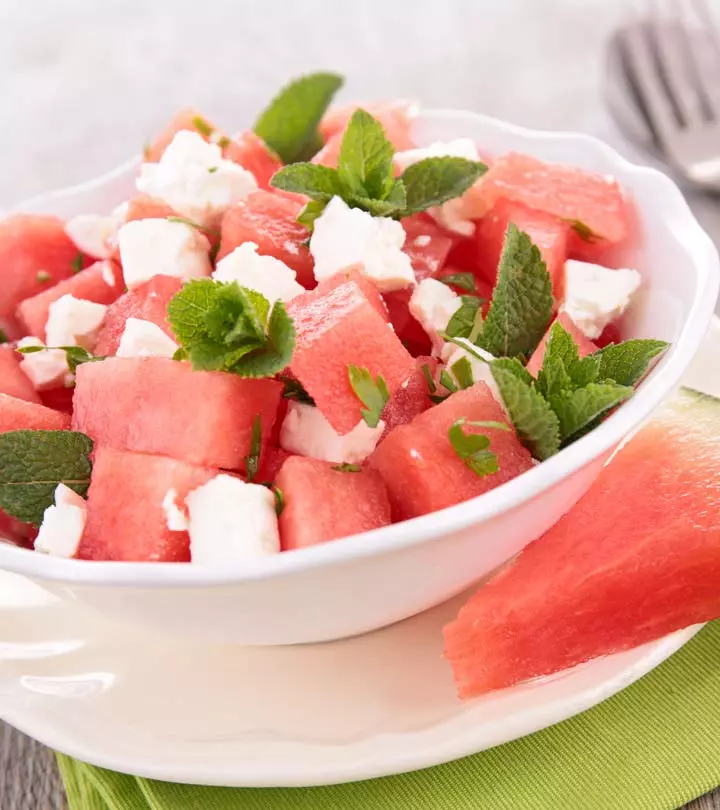
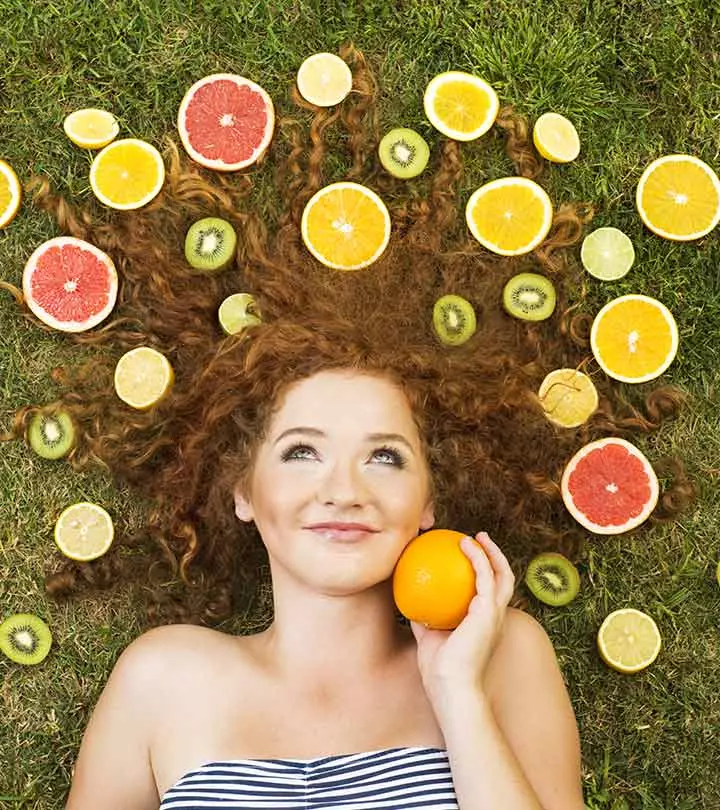
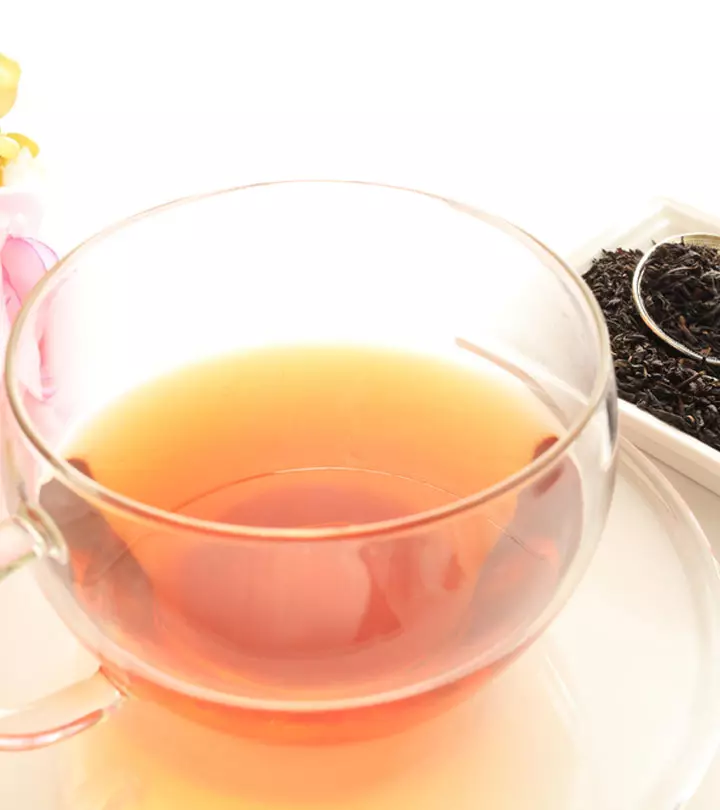
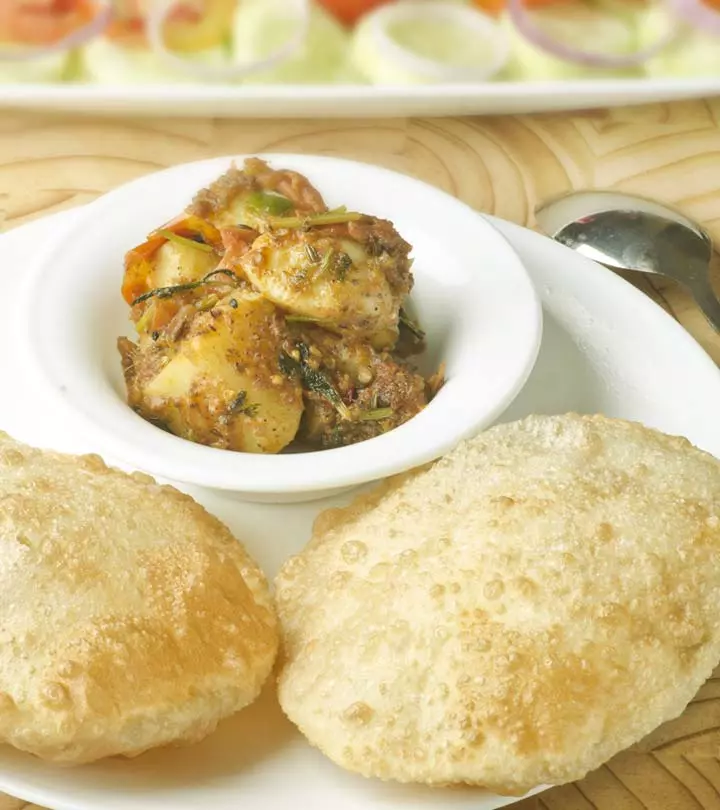

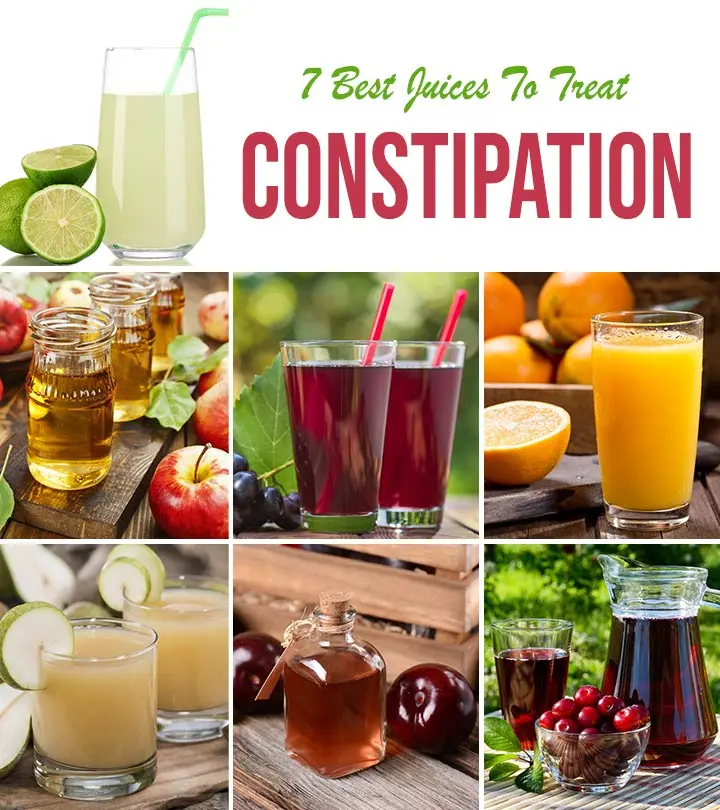

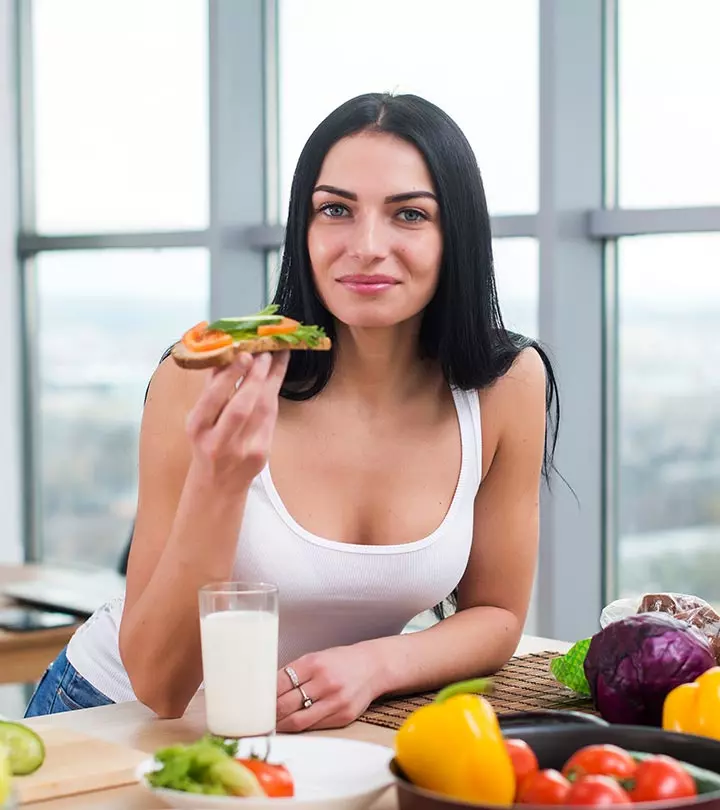
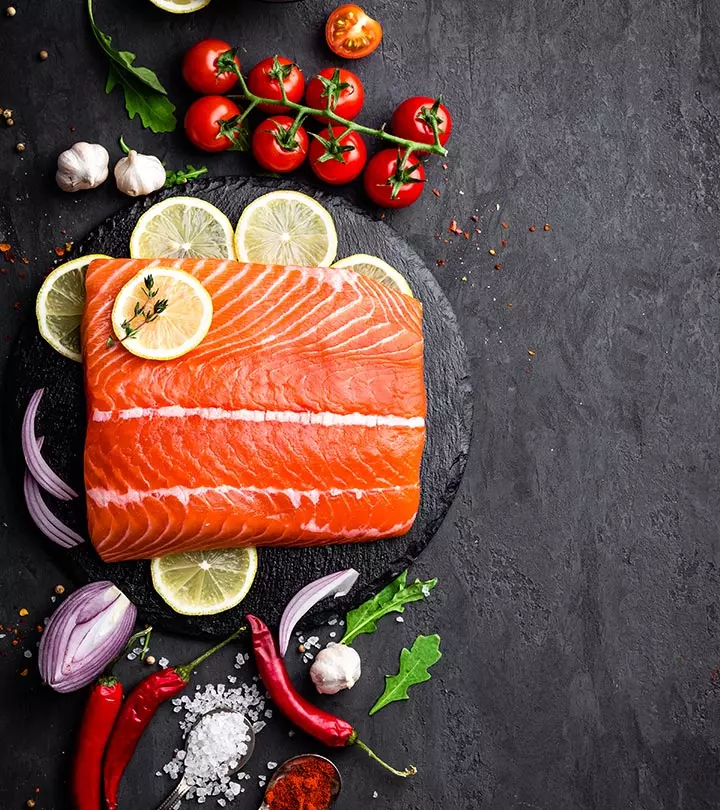
Community Experiences
Join the conversation and become a part of our empowering community! Share your stories, experiences, and insights to connect with other beauty, lifestyle, and health enthusiasts.